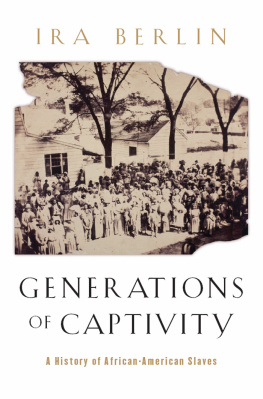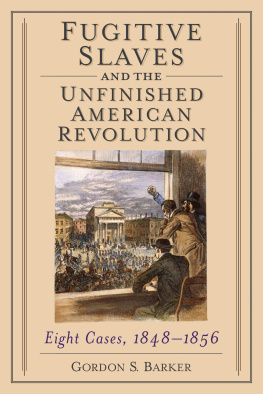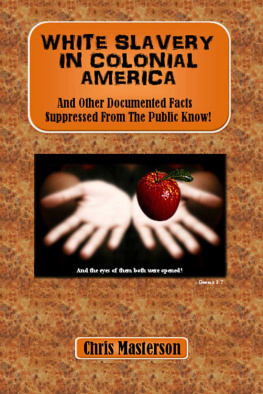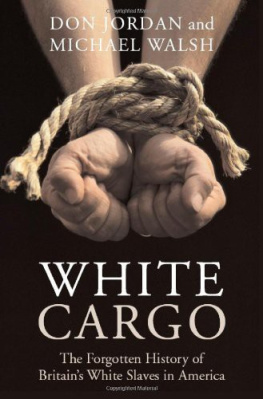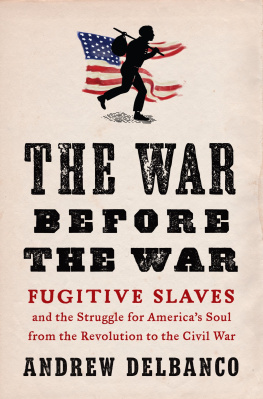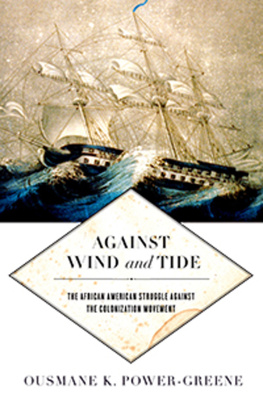ACKNOWLEDGMENTS
There is much accumulated interest on the debts I owe to those who played a role in the making of this book. First and foremost are the many Liberians who shared their time, their thoughts, and their voices. My visits coincided with some of the most traumatic episodes in their nations history, with the end of its first civil war and the holding of a national election amid the tensions and destruction that war had left in its wake. They always remained gracious in spirit and generous with their time and energy.
I cannot speak highly enough of the courageous Liberian journalists who served as my guides, both figuratively and literally, helping me to understand the Liberian people and history in a way no written record can. They got me access to the people I needed to speak to and steered me around the many obstacles and dangers in a country emerging from war. In particular, I would like to thank James Dorbor and Henry Bestman. More generally, I would like to extend my gratitude to the many Liberians who sat down for interviews with me, often in the war-torn shells of their homes and workplaces. Many of the questions I asked them surely brought up painful memories. I want to thank Dickson Fully for transcribing Chea Cheapoos testimony at the Liberian Truth and Reconciliation Commission.
I also send my heartfelt appreciation to those who made my stays in Liberia as comfortable and productive as they could be: the sisters of St. Teresas Convent in Monrovia, the officials of the Firestone Natural Rubber Company, and especially Archie Bernard, who opened up his familys lovely Mamba Point house to me for a lengthy visit.
The non-Liberians who aided me in the country included the many NGO workers dedicating their lives to repairing a troubled land. In particular, I want to thank the folks at Mdecins Sans Frontires and Save the Children, who allowed me to hitch rides with them up-country and provided me with safe and clean places to stay when I was there. No group, however, was more helpful than Friends of Liberia, an organization of still impassioned former Peace Corps workers, and its then director Jim Gray. Their decision to include me on their election monitoring team provided me an indispensable opportunity to further my research, even as it allowed me a chance to give something back to a country I had come to love. I also benefited immensely from the time I spent with my co-monitor Warren dAzevedo, dean of Liberian anthropology. Back in the United States, I got helpful reminiscences about a long-lost Liberia from the Pepperbirds, expatriate alumni of the Firestone operations in Liberia.
Much of this book is based on historical sources. Sadly, Liberias national archives were destroyed in the war. But through the dedicated efforts of the Indiana University Liberian Collections Project and its director Verlon Stone, much of its contents have been preserved and digitized in this country. Aside from dAzevedo, scholars who aided my work include Al-Hassan Conteh, Elwood Dunn, and Svend Holsoe. I would also like to thank librarians and archivists at the Library of Congress and the Young Research Library at UCLA. The Liberian Studies Association and its publication, the Liberian Studies Journal , allowed me to keep up with the latest Liberian scholarship and developments.
This book would not have been possible without the support and guidance of my agent, Geri Thoma, and the editing staff at Hill and Wang: Dan Crissman, Thomas LeBien, and most especially Dan Gerstle. Without his editing skills and suggestions, this book would be a far wordier, and so far less worthy, read. I also extend thanks to the publicist, Brian Gittis. Other help in shaping the story came from my sister, Jill Ciment, and my dear friend and fellow historian Andrew Gyory, both of whom read and commented on lengthy excerpts of the manuscript.
Before signing off, I want to express my love to my wife, Irene, and the joys of our livesBibi and Bruno. I owe them many missed evenings and weekends. Lastly, I dedicate this book to my recently deceased mother, Gloria. Her love of life and learning has been an inspiration to me and to all of those who knew her.
ALSO BY JAMES CIMENT
The Young Peoples History of the United States
Palestine/Israel: The Long Conflict
Angola and Mozambique: Postcolonial Wars in Southern Africa
Algeria: The Fundamentalist Challenge
The Kurds: State and Minority in Turkey, Iraq and Iran
ONE
The Black Mayflower
Even to the casual waterfront visitor, there would have been something unusual about the departure preparations of the Elizabeth , an otherwise ordinary-looking three-masted ship berthed on New York Citys North River. The goods being loaded onto itfarm equipment, artisan tools, the materials to build a gristmill, enough weaponry to arm a company of troopswere neither the bulk freight of commerce nor the baggage of travelers planning on a return voyage. The appearance of the Elizabeth s passengers would have likewise caught the eye: they were all either black or mulatto. Most had their families with them, including a couple of dozen children, though there were a few single men and women, too. And on this last day in January 1820, they were about the only people in motion on the normally bustling waterfront.
New York City was then on the cusp of greatness, primed to become the young and unnaturally restless nations gateway to the world. The change was most noticeable in the speed and scale of things. Just two years earlier, a transplanted English merchant named Jeremiah Thompsonhaving made an unparalleled fortune in cottonlaunched his Black Ball Line, which offered the first regularly scheduled voyages in modern maritime history. At first devoted to freight, the packet ships were quickly adapted to passenger traffic by former merchants in the now-illegal slave trade eager to wring a profit from the business of moving impoverished immigrants across the Atlantic.
But on that bitterly cold day in early 1820, nature intervened. Global temperatures at the tail end of the little ice age, as historians call the three centuries between the early 1500s and 1800s, were on average only about a degree colder than normal, but that was enough for the North River to routinely freeze over. Commerce slowed down but New Yorkers did not. So popular were winter promenades across the ice that vendors, many of them former slave women (New Yorks last slave would not be freed until 1827), set up stands to sell smoked oysters, roasted corn, and baked sweet potatoes from the Manhattan docks to the Jersey Palisades.
For the ninety-odd passengers and crew aboard the Elizabeth , however, the ice was no playground. For six days, they struggled with pikes and shovels to break the ship free. As they did so, the passenger list shrank. The Joshua Moses family of Philadelphia, laid low by illness, returned to shore with seeming reluctance. The body of a two-year-old was carried off the ship to be interred, without fee, in the vault of the African Methodist Episcopal Zion Church, the citys oldest black congregation.
Then came a thaw and, on Sunday, February 6, the ship weighed anchor off White Hall Street, near Battery Park, the naval escort Cyane by its side. We left standing on the wharves, I believe some thousands of people, both white and coloured, recorded one passenger. But even though contemporaries likened the sailing of the Elizabeth to that of the Mayflower from England exactly two centuries before, the mood was not celebratory. For the coloured people in the crowd, it was a solemn occasion; some were there to bid farewell to friends and loved ones, others to witness a bittersweet moment in the history of their people. For the whites in attendance, there was satisfaction of various sorts. A few saw a group of despised and degraded people at long last set free. Many others simply subtracted ninety or so niggers from a population that darkened the soil of a white mans republic.
Next page

